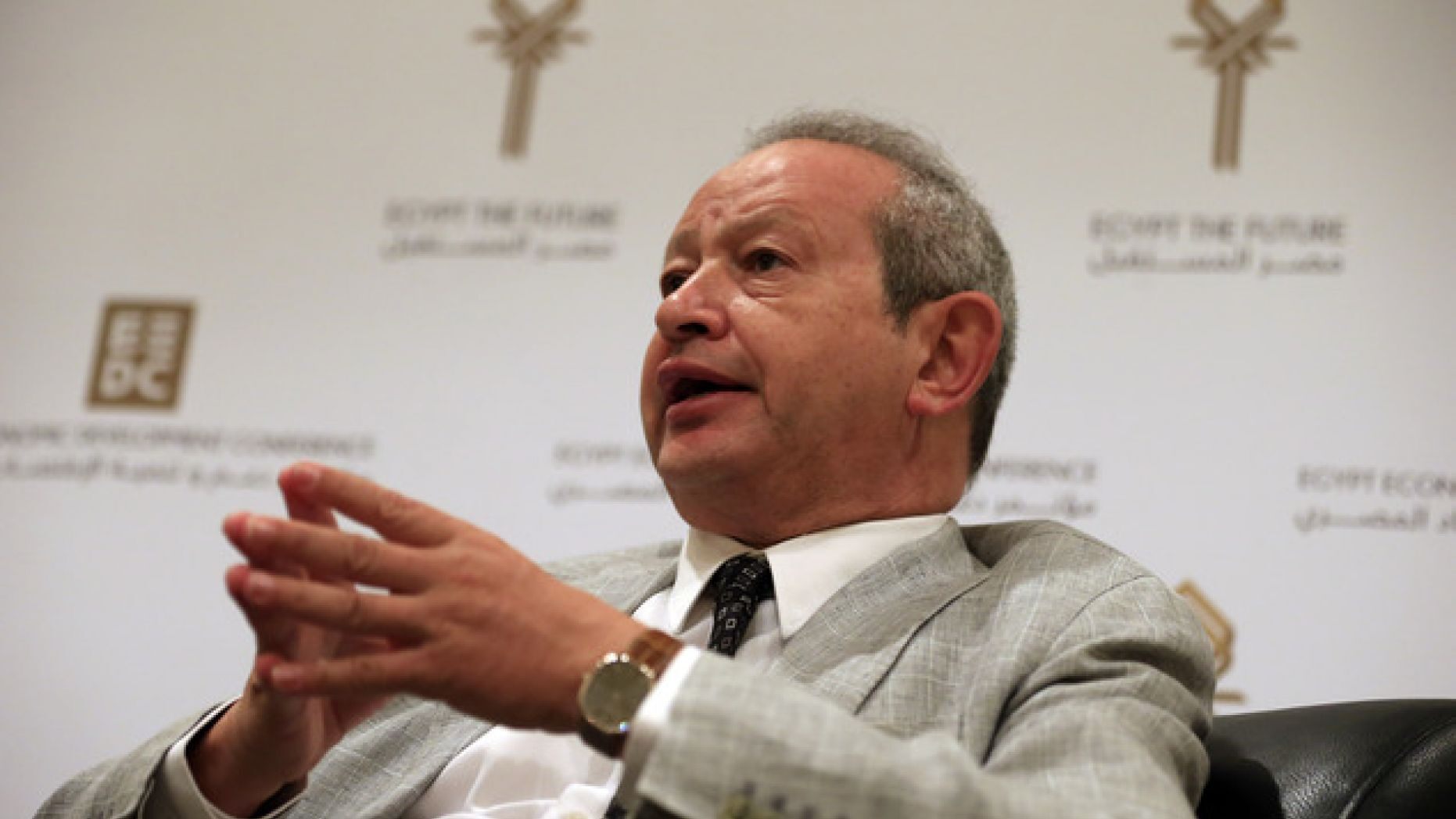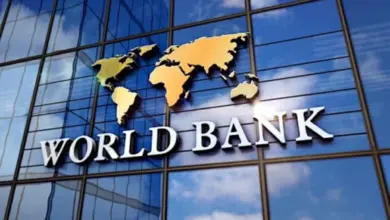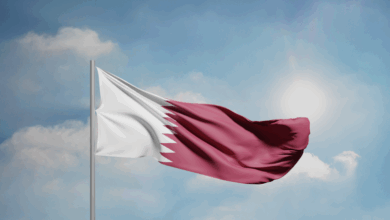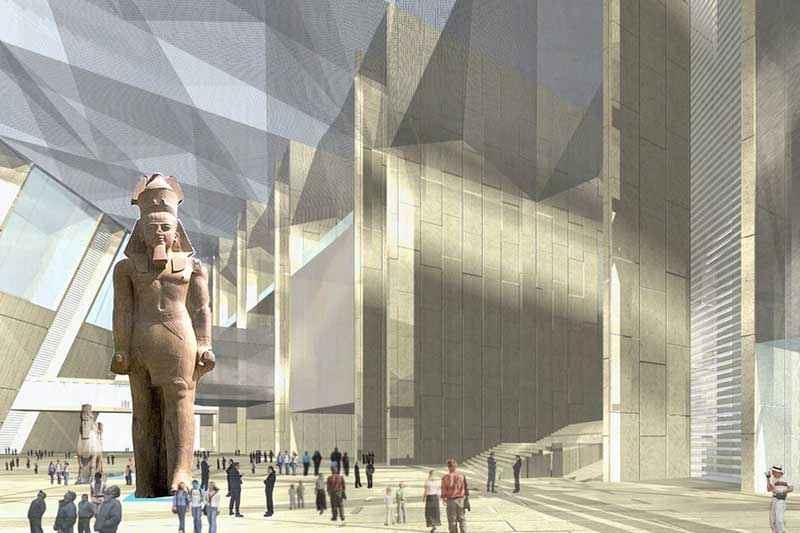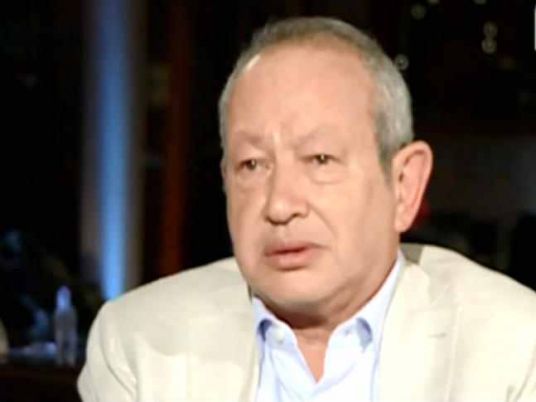
Businessman Naguib Sawiris told Al-Masry Al-Youm in an interview that his family had decided to inject fresh investments worth US$5 billion into the Egyptian market within one year, in a bid to assist in implementing the five-year, $20-billion development plan.
Sawiris maintained the importance of political stability and democratization as a means to reinvigorate the Egyptian economy. He stressed the significance of the Sharm el-Sheikh conference in attracting investments to a market recovering from a four-year recession in foreign and local investments since the instability of January 2011.
The business mogul discussed a number of subjects, among them the fact that he and his family are the country’s largest taxpayers, that the military should not engage in a competition with the private sector and that it is imperative we not rush the implementation of projects adopted by President Abdel Fattah al-Sisi without conducting the required prior studies.
To the text of the interview:
Q: How do you see the Egyptian situation in general, and are we currently in a stage of constructiveness or fear for the future?
A: We are in the stage of optimism, for Egypt’s future is based on economy, not politics. But unfortunately, in reality, we link between both. Therefore, failure to proceed with the quest for democracy would mean a failure in attaining the stability needed for refreshing the economy and attracting investment.
We had been faring well in restoring stability and rebuilding our institutions before the Supreme Constitutional Court’s verdict annulled the law on constituencies which caused the elections to be postponed for several months. It was a setback that could have been evaded by laying down a constitutionally intact law.
However, the reality exposed a state of confusion Egypt had gone through whenever it tried to take a major step in its democratization quest. We even failed to secure a football match, which caused 20 to die, repeating an earlier tragedy from which we did not learn a lesson [Port Said Stadium massacre]. So, the decision was to ban the fans from attending the game, as if that was the solution to the crisis, and here we come to realize the signs of failure.
And though we are in a sensitive stage when we do not have the luxury, I remain optimistic, especially with President Sisi cognizant of the seriousness of the situation. The government is also aware of the fact that the country’s primary challenge lies in economy, rather than politics.
Q: So you think the 30 June uprising is moving upwards or downwards?
A: It had been moving upwards until the constitutional court’s verdict and the subsequent postponement of elections. The way electoral lists were formed was not well-guided at all.
Yet, I can argue that the dysfunction in several sectors since the 2011 uprising made the market thirsty, as foreign investments disappeared and investments by Egyptian businessmen stopped for four consecutive years. Personally, I was one of those businessmen who lost their craving over that period. Then came the 30 June revolution as a bonanza that quenched the thirst of the market and investors. While several ministers in the current government are highly efficient, the Finance Minister acted in the beginning as a tax collector, which is not good. It is not adequate that the Investment Minister travels abroad to come back with a foreign investor, only to be repelled by the Finance Minister.
Speaking of that point, I am really amazed by the logic adopted by communists and Revolutionary Socialists – who do not understand anything in the first place- which calls for progressive taxes. How could we impose a progressive tax on the private sector that yields gains enabling it to open new factories and firms that secure fresh work opportunities, and instead entrust it to a government that is acting as a failing manager losing with its companies?
The government should have encouraged those who reinvest their gains and secure good jobs for the youth. I should hereby recall former Finance Minister Botrous Ghali when he cut taxes down to 20 percent, causing returns to triple as some corporation owners were encouraged by the cut to cease forging their tax statements.
Q: How do you assess the first eight months under President Sisi?
A: I think we cannot hold anything against him, on the contrary, the man had adopted a number of decrees promptly that were proven successful, such as the air strikes on Libya launched in retaliation for the execution of 21 Egyptians by the Islamic State terrorists. It was unprecedented.
There is also his visit to the Coptic Orthodox Cathedral on Christmas Eve, which made him the first Egyptian president to make such a visit. The visit broke away with the past submission to fanaticism.
The appointment of young governors was also a very good one.
It was also commendable to open new international relations with Russia and China out of the boundaries of the relations with the United States that have gone against the public interest of the Egyptian people and sought to impose the popularly rejected political Islam.
However, I am wary of the state of hastiness in carrying out projects adopted by Sisi, and am afraid that they were not given the sufficient time for prior study.
Q: How do you assess the performance of Ibrahim Mehleb’s government?
A: The government has been successful in its decisions, and Mehleb is a hard-working man. There are a number of highly skilled ministers, such as the petroleum, electricity, industry, energy, social solidarity and investment ministers.
If the constitution is to be applied, the party winning the parliamentary majority should be forming the government
Q: Do you doubt the application of the constitution?
A: Not so much. Anyways, let us wait and see. As for the Free Egyptians Party, it is competing for only 200 seats.
Q: How do you view the recent government reshuffle?
A: (Laughing) I call that as only a replacement of the Interior Minister. Honestly, I hate ungratefulness and was personally for keeping the minister. We should not forget his honorable position during the 30 June revolution. Had he not been an efficient minister, he wouldn’t have been subjected to an assassination attempt. To suggest that his resignation came over a football match or the death of an activist is not adequate, though those incidents also tarnished his career.
Q: And what do you think of the appointment of Magdy Abdel Ghaffar as Interior Minister?
A: It is unfair to judge him right now, we should give him enough time.
Q: How do you view the economic conference in Sharm el-Sheikh?
The economic conference will succeed to a great extent because the government performed excellently preparing for it. People are standing by that conference and are feeling the urgency just like the president and the government do.
We, as businessmen, are sensing the government's encouragement for investment that is beyond our expectations. I would like to note, away from any boasting, that my family is the biggest private sector employer and taxpayer. Our family board has decided to delve deeper in the market.
All that is to be compared to Mohamed Morsi’s Muslim Brotherhood regime. It was so stupid, that it tried to get rid of me. Khairat al-Shater told an American friend that Morsi was picking on me.
Q: There is confusion concerning that matter, did your family pay LE7 billion under pressure?
A: Of course. My father had been banned from travel, and the regime at that time made threats to bring down a company owned by my brother. Therefore, it was necessary to pay the requested amount to maintain our economic entity and spare ourselves from prosecution. The Brotherhood were devilish. They thought they could subdue me by pressuring my father.
Q: How did the negotiations go?
A: I was not party to the negotiations, but my father and younger brother were.
Q: Is it true that an official from Morsi’s presidency received you at the airport?
A: I was coming from abroad with my father and was surprised with a presidency representative waiting for us with flowers and chocolate, though my father was told by that official that I would do better to wait abroad a little longer, instead of coming back with him on the same flight.
Q: Do you consider the conference as a resource for grants and donations, or rather for fresh investments?
A: Both, actually. Gulf states have been providing Egypt with loans and grants. We are currently experiencing a funding gap that requires US$10-20 billion in the present period so as to enable Egypt to carry out its five-year plan, in addition to $15 billion in yearly investments. I feel we will be able to secure those investments, especially since my family had decided to inject a quarter of that amount ($5 billion) in the first of those five years.
I can also see there are political developments in the Gulf that will cause investment and loans to Egypt to drop, such as falling oil prices and political changes in Yemen and Saudi Arabia.
Q: But some blame that on US pressures on Gulf states, rather than the deciline in petroleum prices?
A: That's not true, and I believe the solution for that crisis is to approach the International Monetary Fund, especially with the economic plan laid out that conforms to the World Bank’s (WB) vision. Another solution is the activation of European aid, which would require a detente in issues related to human rights, freedoms and activists.
Q: Does the international attack on Egypt not prevent the WB from lending to the country? Especially with the US taking an opposing stance?
A: I do not think so because the Americans are humbled by the terrorist Islamic State. They are playing fools by making a distinction between the Islamic State in Libya and that in Iraq and Syria.
Q: How do you see the unified investment law?
A: The law is very good and encourages genuine investment. It has already resolved 80 percent of investment-related problems. My only reservation concerns the wording.
The new law has set new methods for dealing with foreign investors, especially with the January 2011 uprising having left catastrophic consequences such as the jailing of some businessmen, the withdrawal of ownership of privatized companies and the imprisonment of ministers for merely doing their duty. All these destabilized the investment atmosphere.
The law requires investors to deal with one window so as to obtain all the necessary clearances for his projects. Yet, there are other problems outside the scope of the law that impede investments, such as poor electricity and water services. Also, taxes should not be imposed so suddenly on investors.
Such problems I cannot deny when talking to investors, yet I console them that amid all those problems, we manage to gain a lot.
Q: What are the decisions that still need to be completed to reinvigorate investments in Egypt?
A: Public employees should be immunized against imprisonment in case he/she issues wrongful decisions which he did not profit from yet. Now, we see ministers who decline to sign important decisions for fear of prosecution, a phenomenon in place since 25 January 2011 despite political and economic changes. Unfortunately, the media labels such a suggestion as a protection of corruption rather than of public employees.
Q: Are you for the proposition of establishing a bank for lands?
A: That’s an excellent idea.
Q: The army’s engagement in economic projects is controversial, what do you say?
A: I prefer that the army focuses on defense and border security. Any other irrelevant activity would affect the more important issues. I am for securing the highest payment in the country for army and police forces since they put their life to danger all the time. Raising their payment prevents bribery and nepotism and spares officers at both institutions the negative perception some people have of them.
Q: But the military is arguing that its role is only supervisory, and that the projects are practically undertaken by contractor companies?
A: Competition by the military with the private sector involves unacceptable double-standards. I believe the army’s role is to defend the borders and the nation. Anyways, this is not the country’s biggest problem to focus on.
Q: You were one of the businessmen who sat with President Sisi, what conclusion had you drawn from the meeting?
A: I concluded that the President is for free economy, that’s what he had told us in the meeting.
Q: Some say that businessmen let the president down when he called for donating to the Long Live Egypt fund?
A: To start, I love President Sisi and never forgot his support for the Egyptians during the 30 June revolution. I was wary of his expectations, and, indeed, they did let him down. But they did the same to me in relation to funding the Free Egyptians Party. Rejection of teamwork and voluntary effort, and the absence of the culture of donation, are major problems in Egypt.
Q: What is the total of donations the fund had received?
A: LE8.5 billion, out of which LE3.2 billion were given by the Sawiris family.
Q: Why did you decide to acquire a major share in Euronews?
A: It is a perfect deal. It has a political connotation because some channels, such as CNN and BBC are against Egypt. Euronews, therefore, can deliver our voice abroad, thanks to its neutrality and independence amid the flood of Qatari finances to Western media as the kingdom pays $10 million annually just for a single program.
Q: What was the decision you regretted most over the past four years?
A: The only thing I regretted was having confidence in Dr. Mohamed ElBaradei. He is very hesitant and caused a lot of trouble for political groups by stepping down as vice-president upon the dispersal of the Rabaa al-Adaweya and al-Nahda sit-ins. His resignation was a historic mistake. I refused his suggestion to be more open to the Muslim Brotherhood.

